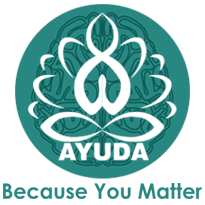Am I going through Depression?
Reading time: 3 minutes
By Suchetana Sengupta
If you are here, you have probably been feeling sad, and glum, and have just been in low spirits for some time. Sadness may be a response to a loss, a breakup, a setback, or you may not know why you’re feeling sad at all. While sadness and pain and heartache are all a normal part of life, feeling blue for a prolonged period of time may make one wonder whether what they’re experiencing are normal emotions, or if it is depression.
What is Depression?
Depression is a clinical disorder that has several emotional and physical symptoms, that are not only limited to sadness and low mood. People that have depression may experience the following:
- A persistent feeling of sadness
- Loss of interest in activities that were previously enjoyable. For example, an outing with friends may just feel exhausting and not fun
- Feeling fatigued, and struggling to complete tasks that were once easy to do
- A significant increase or decrease in appetite and/or sleep. Changes in appetite are often accompanied by weight loss or gain.
- Having a hard time concentrating and making decisions
- Feelings of worthlessness
- Feeling like there is no hope for them, and like nothing can help them improve their situation
- Thinking about death or suicide
It is important to note that the intensity and the duration of the symptoms are key in understanding whether you have depression or not. If you have been experiencing these symptoms for two weeks or more, and if these symptoms have been affecting important areas of your life (for example, your performance in your workplace, your relationship with your loved ones), then you may have Major Depressive Disorder.
I have the symptoms mentioned above, now what?
You have gone through the symptoms of depression, and you may find that you are experiencing many of them. However, this does not necessarily mean that you have depression. Many conditions, such as vitamin deficiencies, an underactive thyroid, and other mental disorders may mimic the symptoms of depression. Thus, it is important that you consult with a mental health professional, and receive a correct diagnosis.
Do’s
- Consult with your primary physician or a mental health professional
- As you wait for your appointment, you can do a number of things that help alleviate the symptoms of depression. A good self-care regime, comprising of a healthy diet, enough sleep, light to moderate exercise, and avoiding drugs and alcohol will help you. However, if you cannot find the energy or motivation to do these things, do not worry, it will get easier when you start receiving treatment.
- If you are feeling suicidal, do not hesitate to call a crisis helpline. These helplines are free of cost. Some are listed at the end of this article.
Don’ts
- Do not google your symptoms. As mentioned above, several conditions, ranging from mild to severe, can have the same symptoms as depression. The plethora of information you will find on google is likely to confuse you more. Instead, note down all the questions you have about your symptoms to ask your mental health professional.
- Do not take online depression tests. The results may be inaccurate and cannot be a substitute for a diagnosis.
Which Mental Health Professional should I consult?
In India, there are three kinds of mental health professionals that treat mental disorders: psychiatrists, clinical psychologists, and counselling psychologists.
Psychiatrist: They are medical doctors who have completed their MD in psychiatry. They can diagnose you and prescribe medicines, but they do not provide psychotherapy. For therapy, they may refer you to a psychologist.
Clinical Psychologist: They have completed their MPhil in Clinical Psychology, and are RCI license holders. They can diagnose you and provide psychotherapy, but cannot prescribe medicines. They may refer you to a psychiatrist if you need medication.
Counselling Psychologist: They have completed their MA/MSc in psychology. They provide psychotherapy. A qualified counselling psychologist is able to assess symptoms and understand underlying causes, and can formulate an effective treatment plan. They may refer you to a psychiatrist for diagnosis and medication.
You may choose to consult with any of these professionals, and if they think you need the expertise of another professional, they will give you a referral.
How will I be treated for Depression?
Depression is usually treated with a combination of medication and psychotherapy. However, mild depression may be treated only with psychotherapy or counselling sessions with a therapist.
There are several types of medication that are used to treat depression. Side effects of these medicines range from negligible to mild. However, if you do experience a severe side effect, your doctor will change the medication.
Psychotherapy, or talk therapy, is a form of therapy delivered by talking. There are various forms of talk therapy that can be used to treat depression. Cognitive Behavioral Therapy (CBT) is a commonly used therapy. You will be required to see your therapist once a week or once in two weeks. When your mental health begins to improve, the frequency of your sessions will decrease, and eventually, you may be able to stop going to therapy.
Depression is a very treatable disorder. So, if you are experiencing symptoms of depression, know that help is available!
Crisis Helpline Numbers:
Vandrevala Foundation: 09999666555 (24/7)
Aasra: 09820466726 (24/7)
Sneha: 044-24640050, 044-24640060 (10am-10pm)







